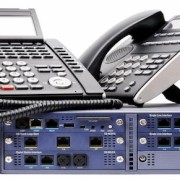The Power of VOIP during Disaster Recovery
Businesses can be severely affected due to natural disasters like floods, hurricanes, and earthquakes etc. that not only damage the office space but also force the staff to relocate. The latest earthquake in Nepal is the biggest example of the veracity of nature and its disastrous implications on humans. Commercial buildings were completely destroyed and offices were buried under the rubble. VoIP or Voice over Internet Protocol is an essential tool that can help you to maintain continuity in your business operations and a little planning would help you in disaster recovery while helping your staff to work from any location.
If you have implemented VoIP then you will be best placed to design a disaster recovery strategy as per your business and infrastructural needs. Contingency plans are often driven by budget and existing infrastructure; however, VoIP offers the appropriate flexibility needed to handle all types of disasters. You can choose to reroute your calls through the existing IP PBX or through the cloud.
There are several organizations that have IP-PBX installed at their offices for which they make significant investments on hardware, software and staff training for supporting in-house communication needs, remote offices and even the contact centers. During a disaster, if it is the office premises and staff that are affected and not the PBX server then it is easy to reroute the calls (though planning and testing) to the individual homes, remote offices and other sites unaffected by the disaster. Organizations that have already implemented teleworking or support the remote offices have an edge over the others because they have the requisite experience and capability of rerouting the calls to the alternate extensions, home phones and mobile phones.
For several organizations, their IP-PBX is the most critical point of failure and there are only a few companies that actually create and test their contingency plans. Seldom do they consider service interruption resulting out of enterprise communication system because of physical damage of equipment and cyberattacks. In order to maintain distributed hardware across multiple locations to handle huge call volume when one PBX server is down, organizations will have to invest a huge amount and this is possible only if the company is a big one.
There are several specialized telecommunication firms and service providers who are offering cloud based service as an alternative to IP-PBX. These service providers are known to set up virtual PBX mirror that functions just like the IP-PBX while performing all the call handling. Whenever the IP-PBX is offline, the cloud mirror starts up with just a few commands or a call to your cloud service provider. All the incoming calls would be instantly routed to the cloud mirror server and you will be able to handle all the calls without even worrying about the downed IP-PBX server. You will be charged for the setup and the monthly contingency feel till the time you keep using the service.
Opting for the cloud based VoIP solution is the best way to ensure continuity and help you during disaster recovery. However, you will have to have to keep in mind that cloud based solutions really do not provide all the features or flexibility that you would probably require to carry out all the business operations. Cloud PBX is not quite appropriate for the organizations that follow regularity reporting requirements like legal, medical and financial businesses.
You will have to weigh your options carefully before planning, creating and implementing disaster recovery strategies involving VoIP.








